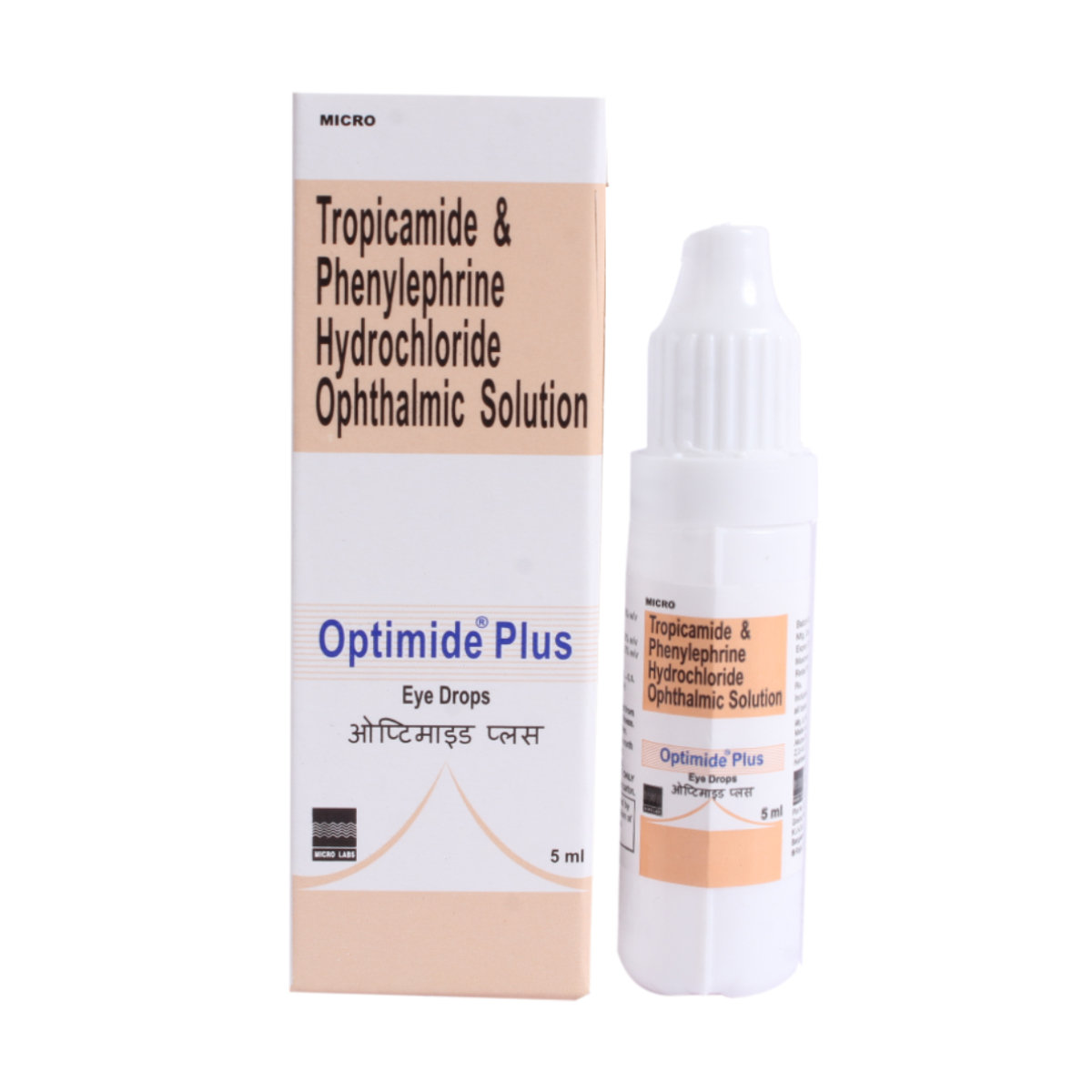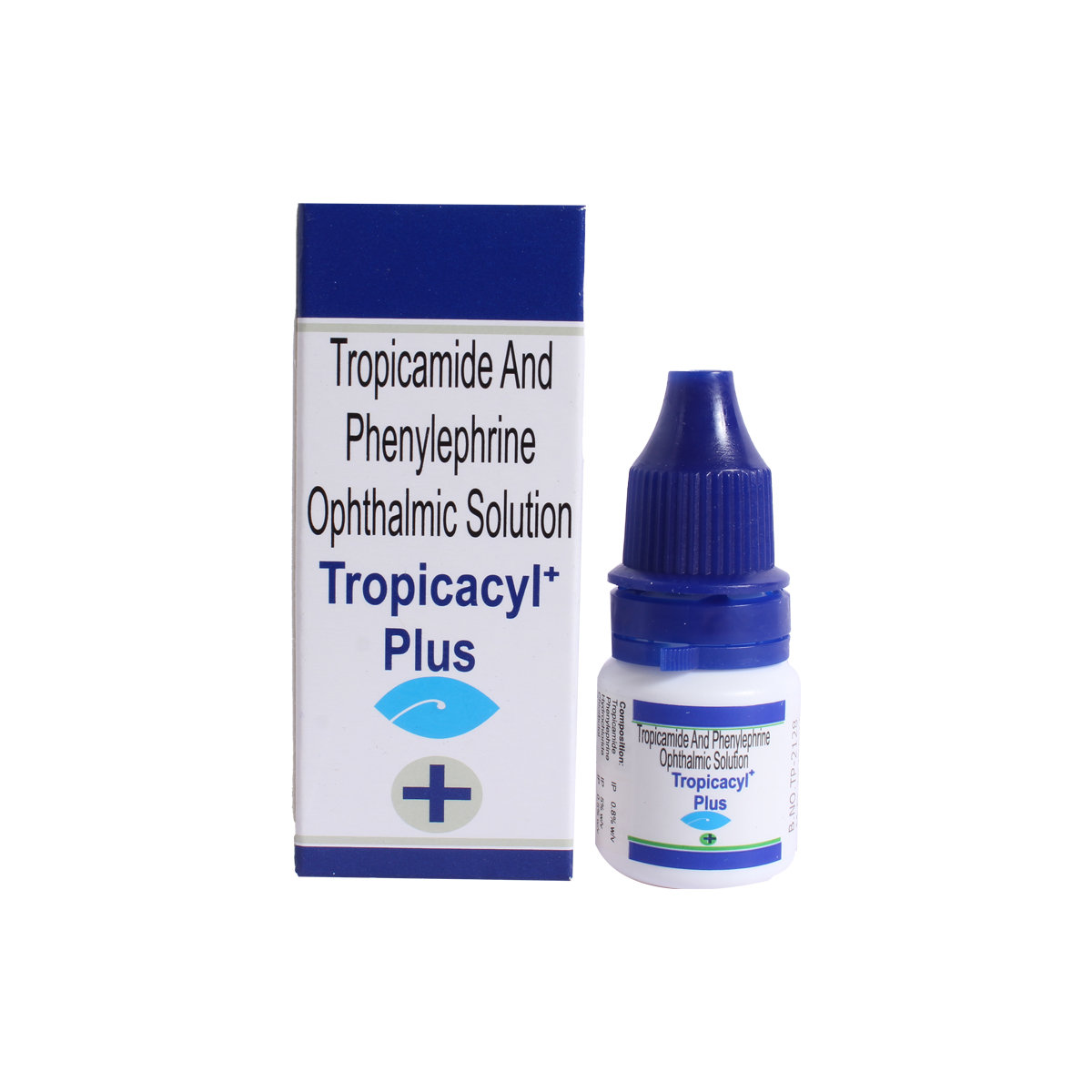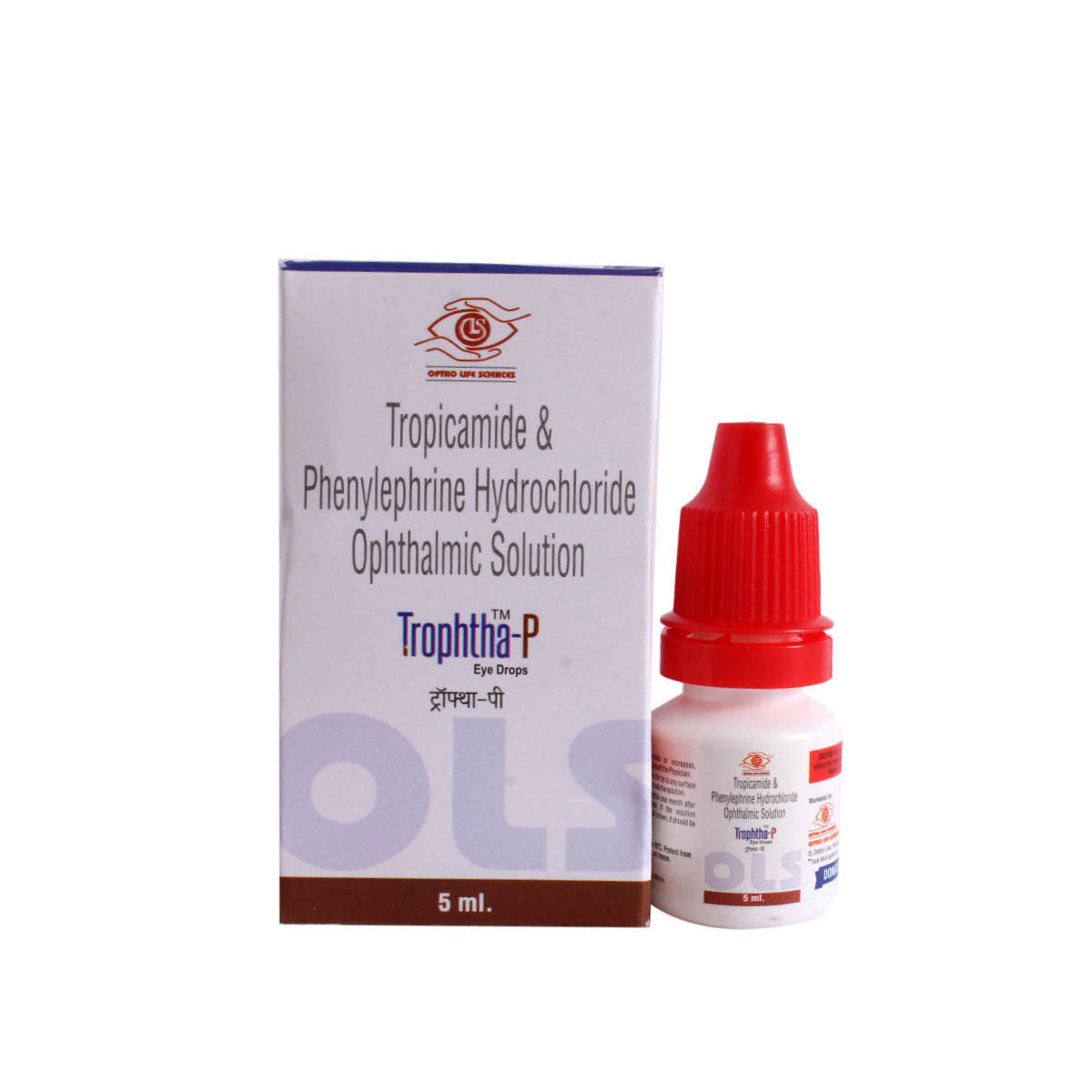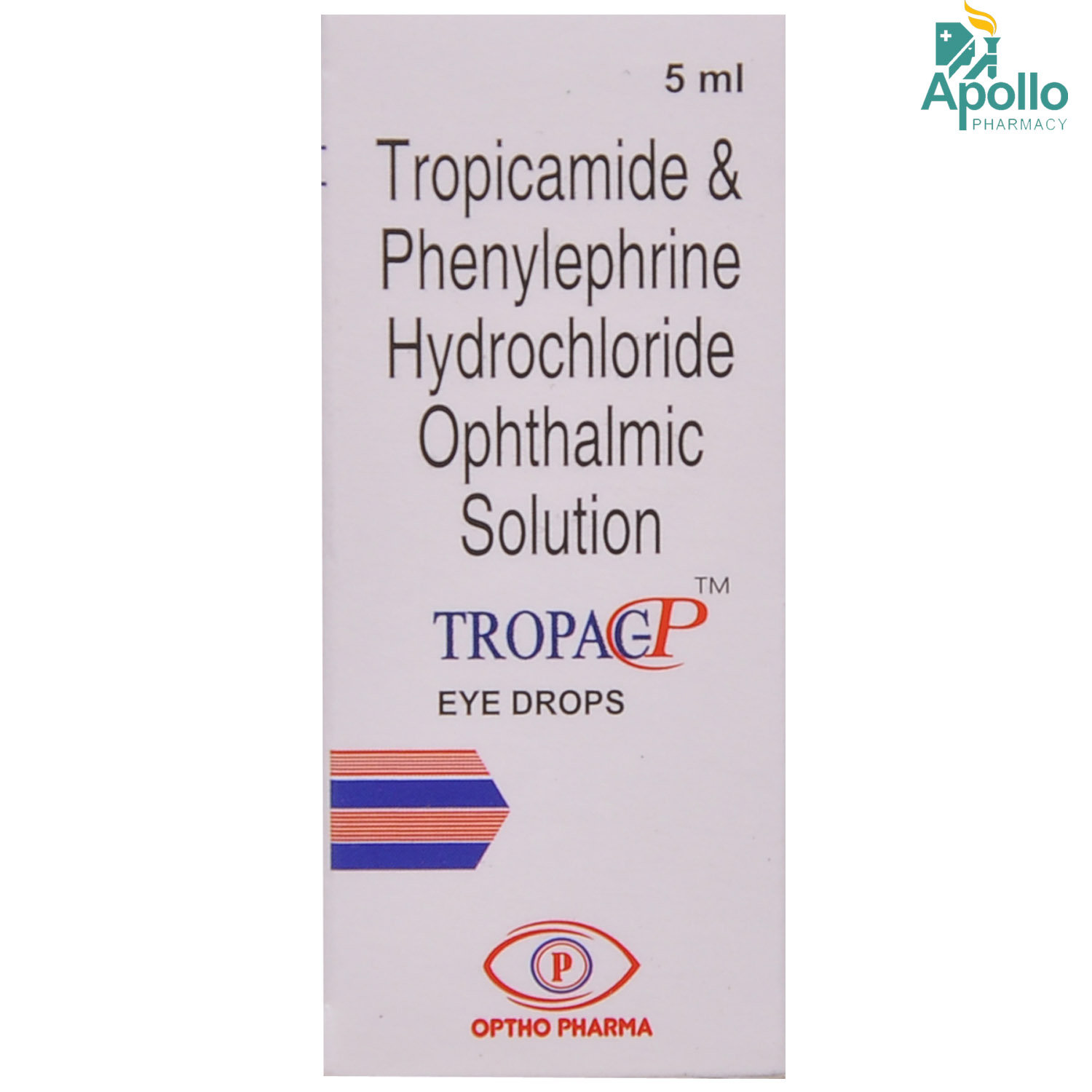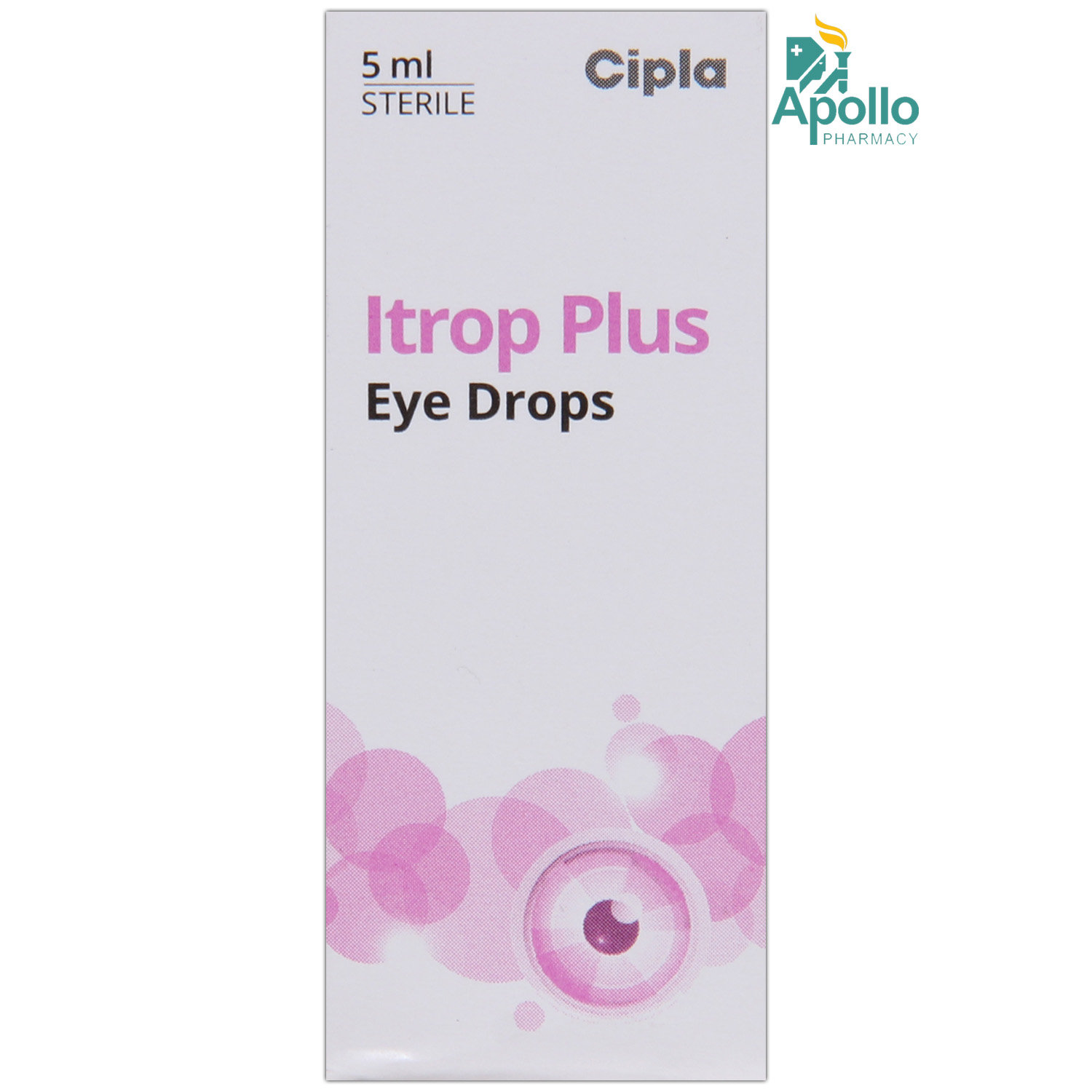T-Ford Eye Drop
MRP ₹48
(Inclusive of all Taxes)
₹7.2 Cashback (15%)
Provide Delivery Location
Online payment accepted
 Prescription drug
Prescription drugWhats That
Composition :
Manufacturer/Marketer :
Consume Type :
Return Policy :
About T-Ford Eye Drop
T-Ford Eye Drop belongs to the class of medications called ‘Ophthalmic agents’ used for examining the eye during the diagnosis or detection of any eye disease, or therapeutic procedures. It can help detect eye inflammation or any other eye diseases such as uveitis (inflammation of the middle layer of the eyewall) or in ophthalmoscopy procedures (retinal examination) or during eye surgeries.
T-Ford Eye Drop is a combination of two medicines: Tropicamide and Phenylephrine. Tropicamide is an anticholinergic, while Phenylephrine is a decongestant. They work by making the pupil of your eye larger and relaxing the muscles in your eye. This allows proper examination of the inside of your eye.
T-Ford Eye Drop is for external use only. You should take this medicine as prescribed by your doctor. The common side-effects of T-Ford Eye Drop are headache, dizziness, blurred vision, photophobia (sensitivity to light), eye pain, eye irritation, burning or stinging sensation in the eye, skin rash, hypotension (low blood pressure) and nausea (feeling sick). Inform your doctor if any of these side-effects persist or get worsen.
Do not take T-Ford Eye Drop if you are allergic to Tropicamide, Phenylephrine or any contents of it. Before taking T-Ford Eye Drop, inform your doctor if you have glaucoma (increased pressure in the eye), heart diseases, hypertension (high blood pressure), hormonal disorders, thyroid problems, diabetes and tachycardia (increased heart rate). Inform your doctor if you are pregnant or breastfeeding before starting T-Ford Eye Drop. It should not be used in children below 1 year.
Uses of T-Ford Eye Drop
Directions for Use
Key Benefits
T-Ford Eye Drop is a combination of two medicines: Tropicamide and Phenylephrine. Tropicamide is an anticholinergic, while Phenylephrine is a decongestant. They work by making the pupil of your eye larger and relaxing the muscles in your eye. This allows proper examination of the inside of your eye.
Storage
Drug Warnings
T-Ford Eye Drop may increase pressure inside the eye, so it should not be used in patients with glaucoma. It is advised to remove contact lenses at least 15 minutes before instilling T-Ford Eye Drop drops as it may eye irritation. T-Ford Eye Drop should be used with caution in patients with eye inflammation. T-Ford Eye Drop is also used with extreme caution in children, especially with Down syndrome and brain damage as there is an increased risk of side-effects associated with the nervous system.
Diet & Lifestyle Advise
- Sleep for at least six to eight hours to rejuvenate your eyes naturally.
- Wash your eyes with clean water at least two to three times a day
- Manage stress, eat healthily, drink plenty of water, exercise regularly and get plenty of sleep.
- Avoid alcoholic beverages as it can make you dehydrated and affect your sleep. This effect can also affect your body’s ability in fighting off infections.
- Reduce screen time (by avoiding watching tv, or phone) and use sunglasses while going out into the sunlight.
Side Effects of T-Ford Eye Drop
- Headache
- Dizziness
- Blurred vision
- Photophobia (sensitivity to light)
- Eye pain
- Eye irritation
- Burning or stinging sensation in the eye
- Skin rash
- Hypotension (low blood pressure)
- Nausea (feeling sick)
Habit Forming
Therapeutic Class
All Substitutes & Brand Comparisons
RX
Tro Plus Eye Drops 5ml
Nri Vision Care India Ltd
₹56
(₹10.08/ 1ml)
16% COSTLIERRX
Out of StockEseltrop Eye Drop
₹60
(₹10.8/ 1ml)
25% COSTLIERRX
Optimide Plus Eye Drops 5 ml
Micro Labs Ltd
₹67.5
(₹12.16/ 1ml)
40% COSTLIER
FAQs
T-Ford Eye Drop is a combination of two medicines: Tropicamide and Phenylephrine. It can cause mydriasis (dilation of the pupil of the eye) to help the doctor to visualize the eye clearly for detection of any eye diseases.
Remove contact lenses at least 15 minutes before using T-Ford Eye Drop as it causes eye irritation. T-Ford Eye Drop may cause photophobia (sensitivity to light), so wear sunglasses if you experience sensitivity to light after using this medicine. T-Ford Eye Drop may also cause blurred vision, so avoid driving or operating heavy machinery until your vision becomes normal.
T-Ford Eye Drop acts or causes dilation of the pupil within minutes after instilling the drops. Its effect may last up to few hours to one day.
T-Ford Eye Drop should not be used in patients with glaucoma as T-Ford Eye Drop may increase pressure inside the eye.
T-Ford Eye Drop may cause blurred vision or other eye problems such as pain or irritation. However, these effects are temporary and resolve within a few hours. Discuss with your doctor the possible risks associated with T-Ford Eye Drop before using this medicine.
Drug-Drug Interactions Checker List
- ATROPINE
- ISOCARBOXAZID
- LINEZOLID
- SELEGILINE
- RASAGILINE
- PHENELZINE
- TRANYLCYPROMINE
- QUINIDINE
- HALOTHANE
Special Advise
Your doctor may advice an eye examination to check for glaucoma before giving T-Ford Eye Drop in patients with history of glaucoma or family history of glaucoma.
Disease/Condition Glossary
Eye diseases: Eye diseases are of a wide variety ranging from minor eye problems that don't last long such as conjunctivitis (pink eye) and major conditions that can lead to blindness such as glaucoma (increased pressure in the eye). Some examples of eye diseases that require diagnostic procedures are refractive errors (near-sightedness and farsightedness), cataracts (clouding of the eye), and glaucoma. The risk of eye diseases is high in older people and patients with diabetes.

Have a query?
Alcohol
Safe if prescribed
Alcohol may interfere with the action of T-Ford Eye Drop. Hence please limit/avoid taking alcohol while being treated with T-Ford Eye Drop.
Pregnancy
Consult your doctor
When clinically needed, T-Ford Eye Drop is given by a doctor to pregnant women after doing a risk/benefit assessment. Please consult your doctor before using T-Ford Eye Drop if you are pregnant or planning to conceive.
Breast Feeding
Consult your doctor
Please consult your doctor before using T-Ford Eye Drop if you are breastfeeding.
Driving
Safe if prescribed
T-Ford Eye Drop may cause blurred vision. So, avoid driving or operating heavy machinery until your vision is clear.
Liver
Consult your doctor
T-Ford Eye Drop can be given safely to patients with liver diseases when prescribed.
Kidney
Consult your doctor
T-Ford Eye Drop can be given safely to patients with kidney diseases when prescribed.
Children
Safe if prescribed
T-Ford Eye Drop should be used with caution in children with heart and neurological diseases. It is not recommended for use in children less than 1 year of age.





